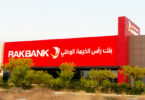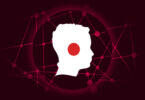Yesterday, UAE’s Ministry of Health and Prevention (MoHAP) launched a blockchain-based system to record and share the assessment information of health professionals.
The blockchain platform will act as a database of doctors, pharmacists and technicians. This will then be shared with the local licensing health authorities so they can to get access to the data quickly and inexpensively.
Validating credentials of health professionals can be a tricky job, with the current system taking weeks to verify the data. Assessing medical workers requires verifying their experience, degrees, qualifications and potentially foreign licenses.
According to the United Nation’s International Migrant Stock 2019, UAE’s population has over 85% migrants. With such a large portion of the population coming from outside the country, it becomes imperative to verify the qualifications and licensing of healthcare workers.
“The blockchain technology offers a variety of benefits and advantages, including a decentralized database in which the stored data becomes unchangeable,” said Mubaraka Ibrahim, Director of Information Technology at the Ministry.
“It will also help improve data and information validation and consistency, which in turn provides a high level of transparency and trust in the healthcare services sector. With immutable data, all health providers can access reliable information and take appropriate decisions, automate workflow processes electronically, improve the experience of customers and employees, and boost operational performance.”
Awad Saghir Al Ketbi, Assistant Under-Secretary of the Support Services Sector, said that the project is a part of Emirates Blockchain Strategy 2021. It aims to transform 50 percent of government transactions into a blockchain-based platform by 2021.
Assessing and credentialing medical workers is a global challenge. Last year, U.S. Commission on Graduates of Foreign Nursing Schools ran a blockchain pilot for credentialing foreign-trained nurses.
The Synaptic Health Alliance, which includes health U.S. insurers Humana, UnitedHealth Group, Aetna and Ascension, is working on a blockchain-based provider directory. The project involves identifying all the hospitals and medical practices, their staff, licenses and qualifications.
Blockchain startup Hashed Health is collaborating with Accenture and a few healthcare providers for ProCredEx, a healthcare credentialing platform.






